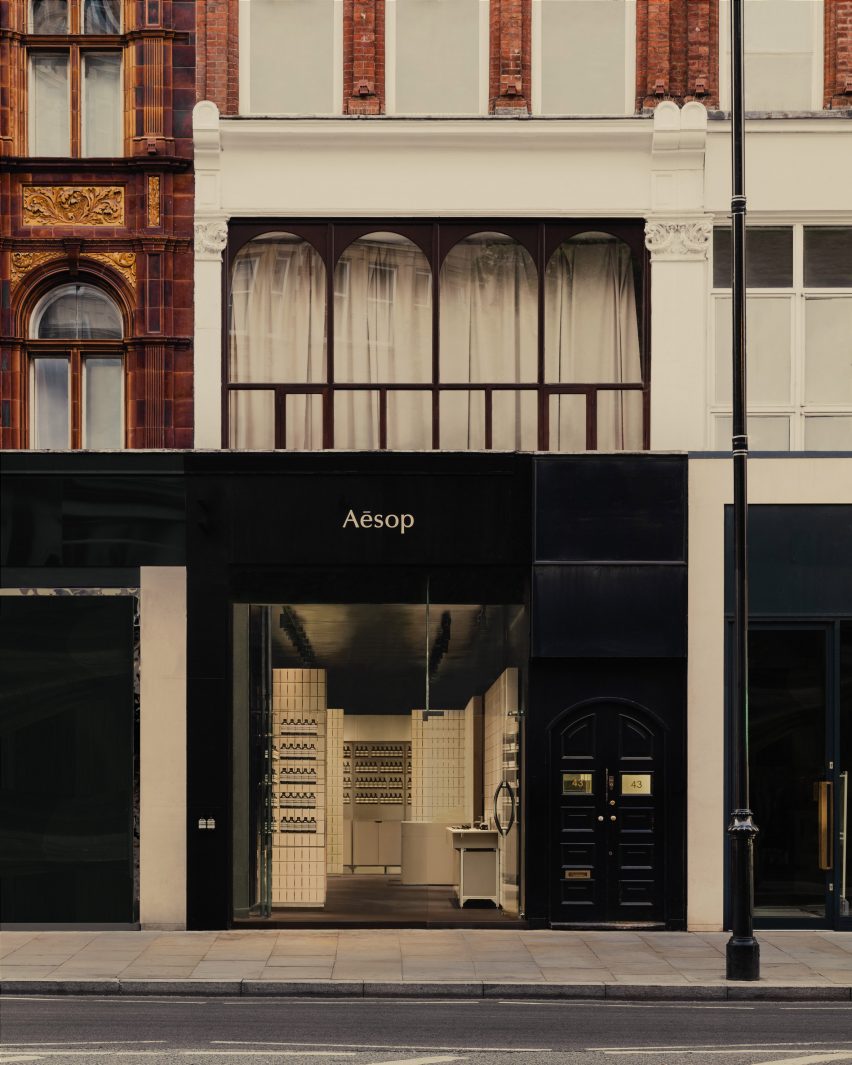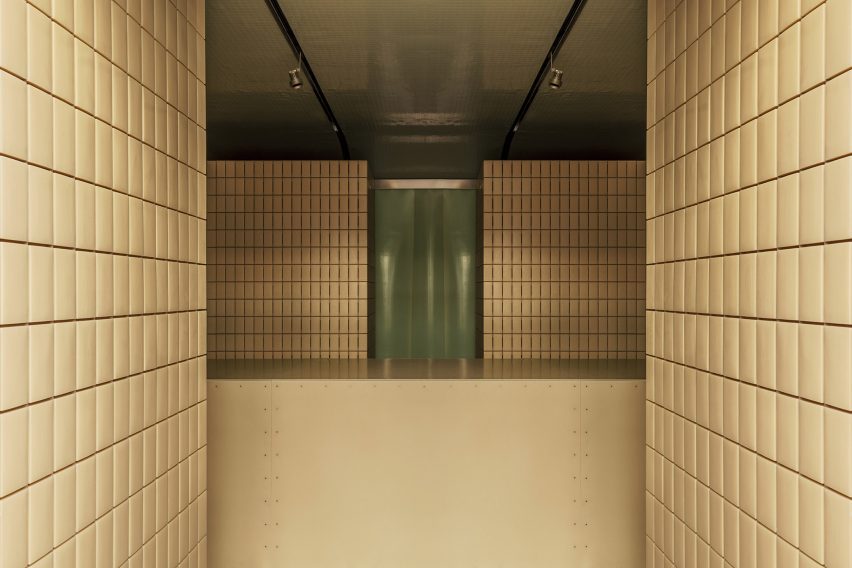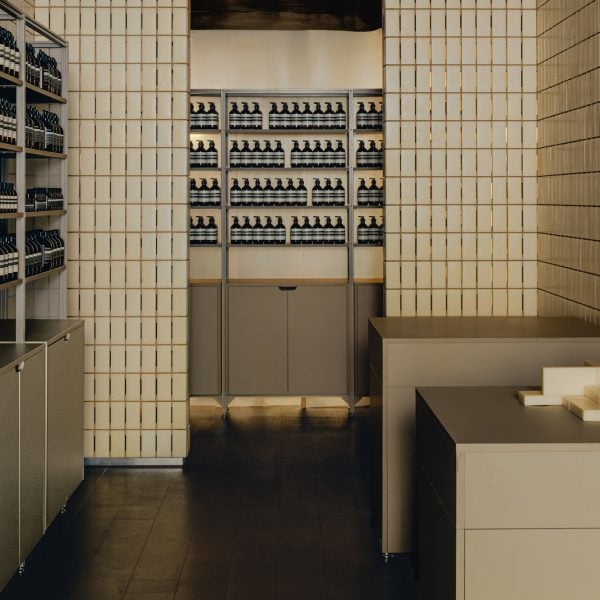Skincare brand Aesop has opened a minimalist store in London’s Knightsbridge, featuring a “soap corridor” created with uniform tiles made from the everyday bathroom product.
Set within a slim and narrow room on Brompton Road, the Aesop outlet is characterised by a floor-to-ceiling installation made of cream-coloured soap bars.
The installation, created by architect Nicolas Schuybroek, was transferred from an Aesop store in Milan, where it was temporarily on display for the city’s design week in April. Slabs of soap were arranged in a gridded layout and supported by a subtle timber structure, designed to be disassembled and installed at different locations.
“Schuybroek had taken one of the most fundamental, functional household items – a bar of soap – to create an unconventional sculpture,” reflected Aesop.

According to the skincare brand, the architect was informed by the simplicity of Arte Povera – an Italian art movement from the 1960s to the 1970s that favoured using unconventional everyday materials instead of more traditional ones such as oil paint or carved marble.
“Just as practitioners of the Arte Povera movement restricted themselves to simple and everyday materials in their poetic compositions, the spatial restriction of the store enforces a streamlined design in the form of a soap corridor,” said Aesop.
As per every Aesop branch, the store includes a central basin for skin consultations. At the Knightsbridge store, every piece of furniture was repurposed from the Aesop furniture collection, including the basin and the grey geometric display shelving.
In one corner of the room, more bars of soap were piled into a sculptural heap, adding a playful touch to the otherwise “muted calm” of the interior.
The skincare brand explained that Schuybroek’s installation is intended to travel to numerous Aesop stores, with Brompton Road being its second home.

Known for its varied store designs that often reference their specific locations, Aesop has nearly 400 outlets around the world.
These include a brick-clad branch in Copenhagen that pays homage to the nearby Louisiana Museum of Modern Art and an open-sided shop in Seoul that was informed by traditional Korean pavilions.
The photography is by Alixe Lay.

